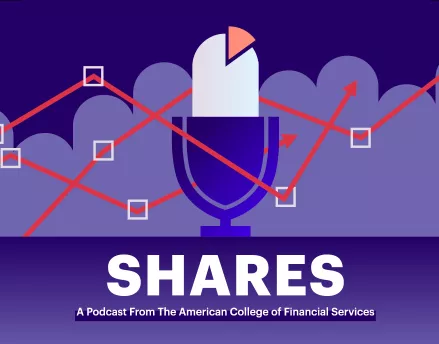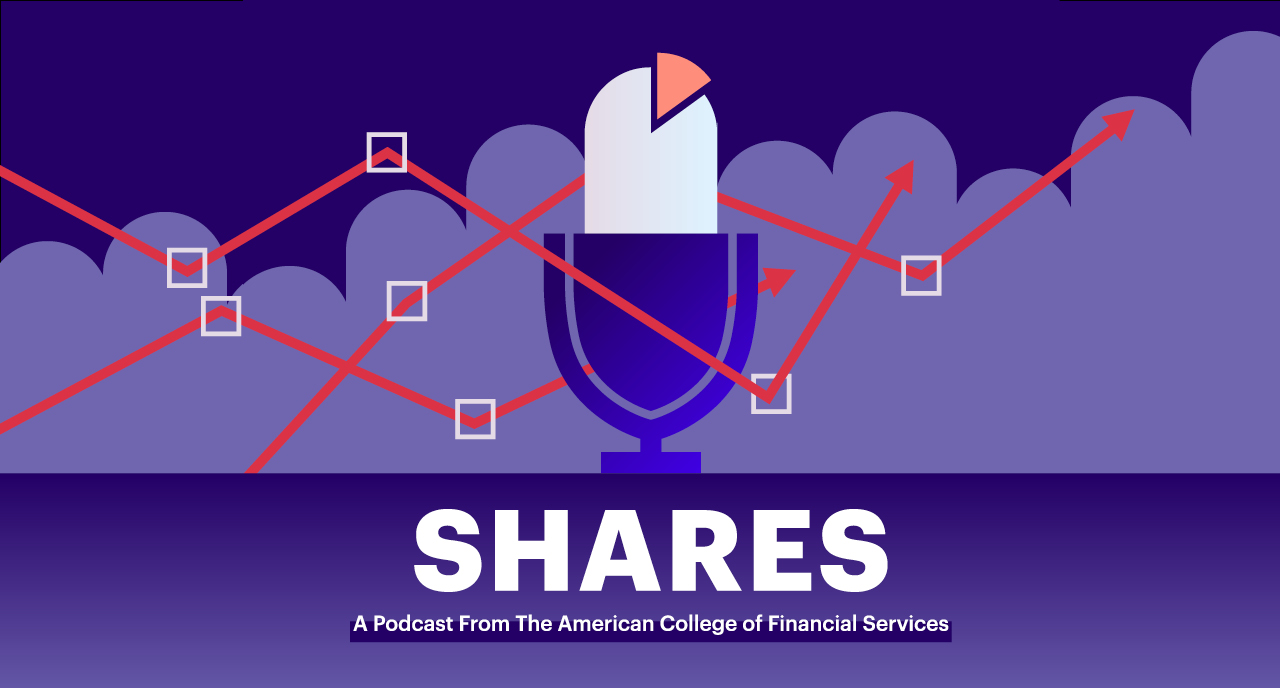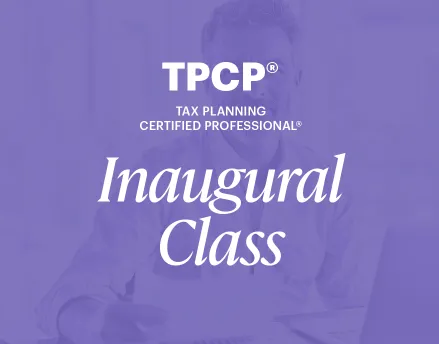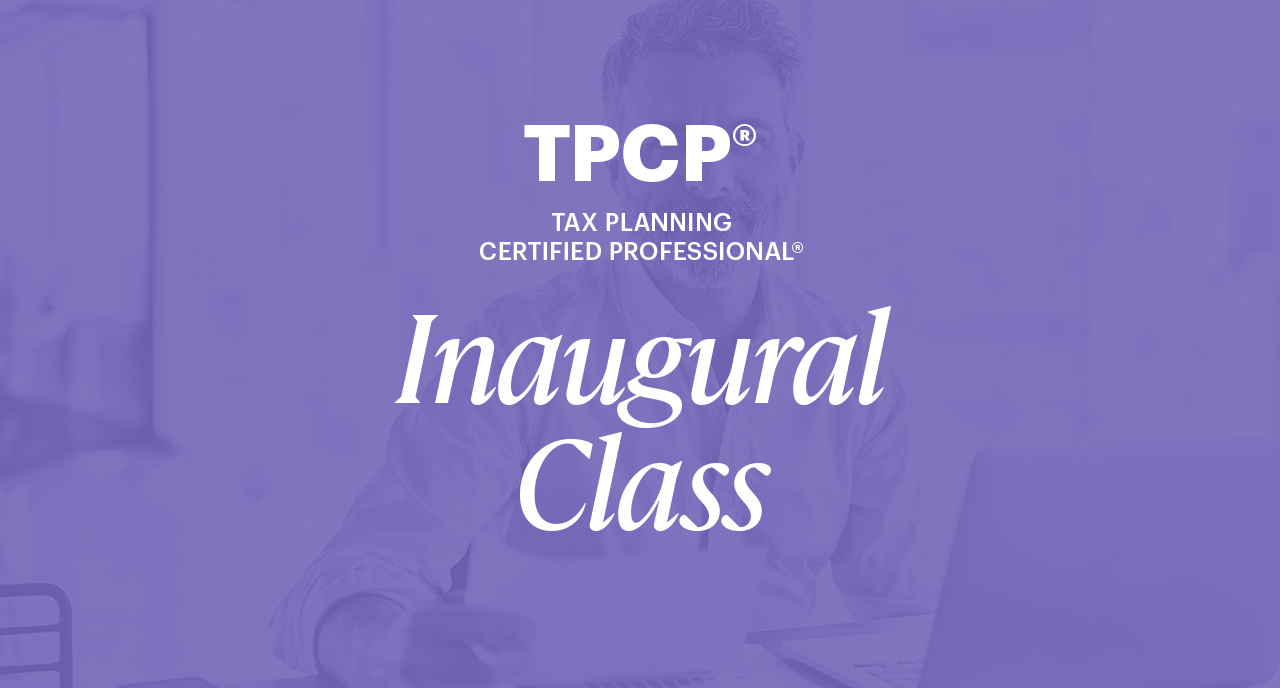Explore the MSFP Program
Strengthen Client Relationships with Behavioral Insights
Take your expertise to the next level as part of the full Master of Science in Financial Planning (MSFP) degree program. Get an in-depth look at the MSFP’s tracks, modular certificates, and student experience now.

Program Overview
Admissions Requirements
There are no prerequisites for the Financial Psychology certificate program if taken independently. However, if taken as part of the MSFP Program, a bachelor’s degree is required; additionally, three or more years of experience in financial services is preferred, but not required.
To earn the Financial Psychology Certificate, you must:
- Successfully complete three courses and achieve a final score of 80%
- Agree to comply with The American College Code of Ethics and Procedures

What You'll Learn
As client needs grow more complex, strong relationships are critical to successful financial planning. This certificate equips you with the psychological tools and communication skills needed to strengthen client trust, navigate emotional financial decisions, and deliver more effective planning outcomes.
Your learning outcomes include the following:
- Understand how biases, heuristics, and emotions shape financial behaviors and decision-making
- Apply behavioral finance theories to real-world planning scenarios and client conversations
- Use financial counseling and therapy techniques to support positive client behavior change
- Explore cultural, relational, and ethical considerations in financial psychology
- Navigate financial trauma and conflict to support clients in moments of stress and transition

Course Delivery
The learning format for graduate certificate programs like the Financial Psychology Certificate is 100% online, with guided study and synchronous components including live weekly classes and weekly homework required. Learners must complete all three courses within the program to earn the certificate. Each class is eight weeks long, with the ability for students to complete the certificate program in under six months.
- Expert Instruction: Learn from nationally-recognized academics, researchers, and practitioners
- All-Online Resources: All-virtual lessons organized in sequential units and supported by short videos, knowledge checks, quizzes, and case studies.
- Grading: Earn a final course grade of 80% or higher to pass, and quizzes count toward your final grades.
- Stackable Learning: Earn your standalone certificate or use it as part of your journey toward your MSFP degree!

Clients Need Behavioral Support
20%
Fewer comprehensive financial advisors field requests for portfolio changes compared to those who only manage investments.2
75%
Of investors fixate on their initial purchase price, affecting their willingness to sell or adjust positions.3
60%
Of investors hesitate to take risks due to fear of making a poor decision.3
Apply Now If:

You Want to Strengthen Client Relationships
Gain Insight Into What Drives Financial Decisions
Develop a deeper understanding of client behavior, emotion, and motivation to deliver more effective, personalized advice.

Learn at Your Pace, On Your Terms
You’re Looking for a Practical, Flexible Learning Experience
Access a powerful online program designed for working professionals, featuring expert faculty and self-paced courses you can complete from anywhere.

Improve Outcomes for Yourself and Your Clients
You Want to Build Your Resume
Take steps toward completing the MSFP Program and earn graduate-level professional certificates at the same time.
Tuition Overview
Single Courses
Starting at $2,050
Complete Program
Starting at $5,227.50
Single Courses
$2,050 per course
Individual courses can be purchased for $2,050 each. To complete the full program, students must complete three courses:
- MSFP 536 Behavioral Finance — Provides an overview of behavioral finance research and theory and how those apply to client-advisor relationships.
- MSFP 591 Financial Psychology — Explores the impact of psychological factors on financial decision-making and how to work with and through those factors for improved client-advisor relationships.
- MSFP 592 Financial Therapy and Counseling — Introduces various therapeutic and counseling techniques that can be employed to support clients in making positive changes.
Full Program
$5,227.50
Tuition for all three courses in the Financial Psychology Certificate Program can be purchased at once for $5,535 (a $615 tuition reduction from paying course by course!). If you’re a College designee, enjoy even bigger savings by enrolling in the full program for only $5,227.50 (a $922.50 tuition reduction!). The full program includes the following three courses:
- MSFP 536 Behavioral Finance — Provides an overview of behavioral finance research and theory and how those apply to client-advisor relationships.
- MSFP 591 Financial Psychology — Explores the impact of psychological factors on financial decision-making and how to work with and through those factors for improved client-advisor relationships.
- MSFP 592 Financial Therapy and Counseling — Introduces various therapeutic and counseling techniques that can be employed to support clients in making positive changes.
Have Questions? We Can Help!
Provide us with a few details, including your question or comment, and an Admissions Advisor will respond to you as soon as possible.
1 Forbes. Why Most Financial Plans Fail. 2021.
2 TheAmerican College of Financial Services. Advising Through Uncertainty Study. 2025.
3 International Journal of Research Publication and Reviews. Behavioral Finance: How Investor Psychology Affects Stock Market Trends. 2025.







